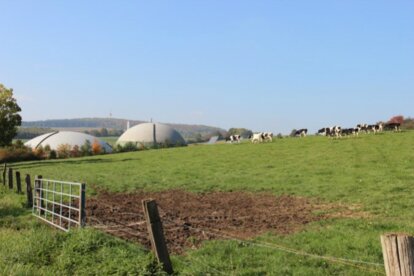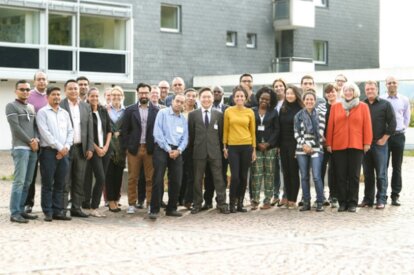What I Got from and Left behind in Gummersbach

It was definitely an attractive offer to go to Germany for two weeks and meet new people having similar interests from all over the world. In addition, the topic of the seminar was “A market-based approach to technological progress, resource management and environmental protection” which was exciting enough to intrigue me because I was looking for a new research topic especially in emerging industries that will become a new growth engine of my country. But most of all, how fascinating it will be if you can make profit and save the earth in the same time?
Yes, I luckily grabbed a chance to participate in a seminar, targeting politicians, policy makers and representatives of think tanks with interests in environment and climate issues, held by the International Academy for Leadership (IAF) of the Friedrich Naumann Foundation for Freedom. The program was filled with numerous group works, presentations and discussions about various subjects including technological development; climate change; sustainability; case studies by each country represented; limits to economic growth; and policy issues in regard of energy, soil degradation, deforestation, biodiversity and water management; etc. all viewed from liberal perspective. From morning to night every day, a seminar room was heated by all participants’ passion toward a new era of sustainable growth. Many cases and ideas were brought by about 30 participants with different backgrounds; engineers, economists, activists from NGOs and government officers who are young opinion leaders in their respective countries.

I realized from those cases that each society faces diverse interests and conflicts and especially that emerging economies and advanced economies have somewhat contrasting perspectives and tasks given that each of them are on a different growth stage. It is neither easy nor right to choose only one when it comes to an issue of poverty or environment. We must not force only certain countries to make a sacrifice. International cooperation will be crucial in environmental protection as much as it is hard to achieve. We need to find a balanced approach based on cooperation and creativeness. In this sense, a market mechanism will be able to function as an efficient problem solver by giving incentives and proposing business opportunities so that innovation from the market can spread across the border.
Other insightful experiences were site visits and meetings with a think tank, government bodies and business affiliates dealing with the stated issues in Germany. We were introduced by the German government’s environmental projects in developing countries at the Federal Ministry for Economic Cooperation and Development in Bonn. On the way to the excursion to Hamburg, we visited Jühnde, a bio-energy plant, and looked around how a small village independently produces and consumes heat and some amount of electricity using biomass. In Hamburg, we visited Hafen City, which is an area of an ongoing reconstruction project by the city, and saw how modern town-planning and sustainable architecture are executed in Germany. A presentation about the Energiewende(Energy transition) in Germany by the Chamber of Commerce in Hamburg was very interesting as it explained how the German government set up a goal to increase a share of new and renewable energy sources and let the business play its role to make market happen. We also visited Wilhelmsburg, another good model of a sustainable city, where the past slum area has been transformed to a new town for low-income households with buildings constructed using eco-friendly materials and energy saving technology. A final visit was to RWE Power Plant Westphalia in Hamm. RWE is the second largest provider of electricity in Germany, and we actually walked around the plant to see its process and facility to generate electricity minimizing the amount of pollution emitted.

Besides, life in the academy itself was so nice with quality accommodation, clean environment in Gummersbach where the academy is located, good food, and the most important, nice people. At night after we finished a whole day, not only participants from our program and other programs but also staffs of the academy used to gather in a bar or a pool room in the basement. We would drink, dance and talk a lot about our personal lives and believes always being thankful to get this opportunity to meet these people from all over the globe. There we could build up a deeper understanding of each other’s culture and partnership as a human being living in this earth together, and we became friends. I believe some day this network will become a strong support to us not only in the areas we work for but also in a personal level.
Two weeks had passed faster than I expected. I left Gummersbach with full of new thoughts and new friends leaving a precious memory of October 2015 behind. Now back in Seoul with more concern on environment and sustainable growth, I am about to kick off my new project in new and renewable energy to find policy suggestions and business opportunities aiming at fostering related industries in Korea. I would like to express my profound gratitude to the Friedrich Naumann Foundation for Freedom for providing and organizing this event, and sincerely hope all activities they do will successfully result in disseminating liberalism in the world as I experienced in this seminar.
